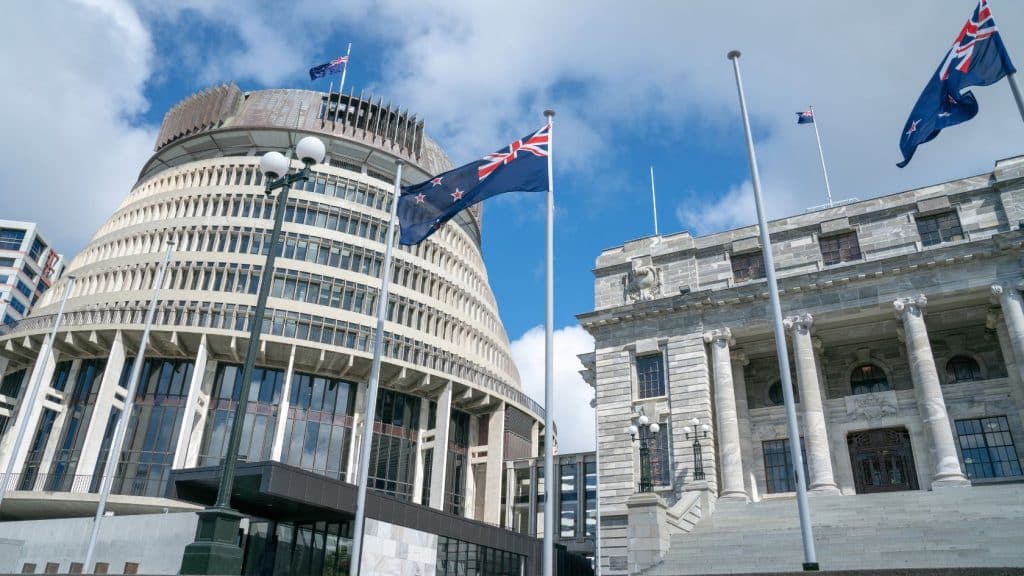Photo credit: Tourism NZ Visual Library
The New Zealand Government has released its 2025 Budget, revealing a strong focus on fiscal restraint and private sector-driven growth. While no direct immigration policy changes were announced, the budget’s structural shift could significantly affect migration trends, workforce demands, and settlement outcomes.
Investment and business incentives
A major feature of the Budget is the Investment Boost tax incentive, which allows businesses to deduct 20% of the cost of new asset purchases. This is designed to increase productivity and growth and may attract foreign investors or entrepreneurial migrants looking to establish or expand operations in New Zealand. This initiative could support skilled migration through investor-focused pathways, such as the Active Investor Plus visa.
Rising demand for skilled migrants in key sectors
Alongside business tax relief, Budget 2025 includes significant government investment in infrastructure, aged care, healthcare, and education, all of which are heavily supported by skilled migrant labour.
Health and aged care funding
Over $1 billion has been allocated to healthcare infrastructure, including the redevelopment of Nelson Hospital and upgrades to Wellington’s emergency department. This investment responds to rising health demands and an ageing population.
This will likely drive greater demand for:
- Registered nurses
- Aged care workers
- Allied health professionals
- Hospital support staff
Many of these roles are listed on Immigration New Zealand’s Green List, making them eligible for faster processing under the Accredited Employer Work Visa (AEWV) and Skilled Residence pathways.
Education and learning support
The Budget commits $700 million to new schools and classrooms and $646 million to learning support, increasing the need for qualified staff across the education sector.
This is expected to expand opportunities for:
- Early childhood educators
- Primary and secondary teachers
- Learning support and inclusion specialists
Many teaching roles are also eligible under AEWV and residence pathways, particularly in regional or high-demand areas. While these investments create promising opportunities, they also coincide with tightened public benefits. Migrants entering these sectors may face:
- Registration or licensing requirements (e.g., for nurses and teachers)
- Regional job placements
- Increased settlement costs due to reduced family support and housing pressures
With rising demand but fewer safety nets, both migrants and employers need to plan carefully.
Economic recovery forecast
The Treasury’s Budget forecast points to a solid economic recovery, with 240,000 new jobs expected and wages set to grow faster than inflation. However, while economic growth is at the forefront, support for individuals is being scaled back.
- KiwiSaver contributions will rise from 3% to 4% (phased from April 2026 to 2028), affecting both employers and employees. Employees can temporarily opt down to 3%.
- Government contributions to KiwiSaver will be halved, and cut off entirely for earners above $180,000 from July 2025.
- 16 and 17 year olds will now be eligible for both government contributions (from July 2025) and employer matching (from April 2026).
- Child and family support programs such as Best Start, Working for Families have been reduced and tightened.
These changes may:
- Increase financial pressure on new migrants, especially families and younger workers.
- Require employers to do more in supporting new migrant hires through onboarding and retention.
- Slow migrant settlement as public benefits reduce.
- Higher cost of living for new migrants e.g., reduced child and education support.
New Zealand is relying on private sector-driven recovery, but businesses and migrants will need to navigate a tighter support environment. For employers, it is critical to understand how these shifts affect visa holders and plan accordingly.
What this means for employers and migrants
New Zealand is relying on the private sector to drive economic growth, and that includes employing global talent. At the same time, support systems for individuals, especially new migrants, are being scaled back. Employers must be prepared to fill these gaps with enhanced workplace support, cultural integration, and onboarding processes.
With opportunities rising but risks also increasing, navigating the immigration landscape has never been more complex. Absolute Immigration NZ is here to help businesses make informed hiring decisions and support migrants in settling successfully.
Contact us at aisupport@absoluteimmigration.com to learn how we can support your immigration goals with tailored advice and expert guidance.





